Topics
Research Areas
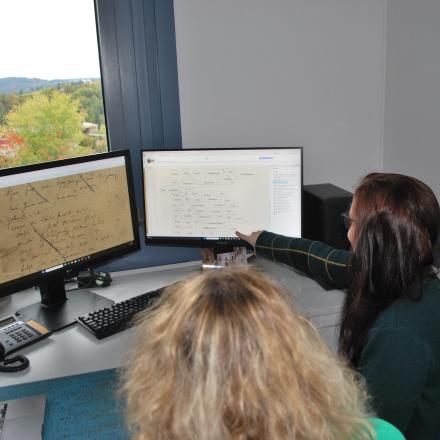
Digital Edition and Lexicography
Research Area I
Discover with us the possibilities and the potential of digital editions and lexicographies.

Software Systems and Research Infrastructure
Research Area II
In an interdisciplinary dialog, we develop suitable software solutions for research in the humanities.
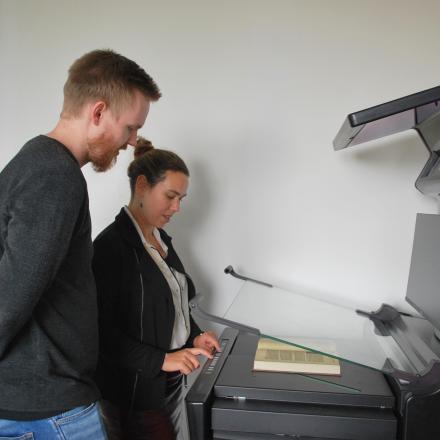
Digital Literary and Cultural Studies
Research Area III
Digital methods change and expand the access to sources, documents, texts, artifacts and other objects of knowledge and open up new research perspectives in historical, literary and cultural studies.
Topics
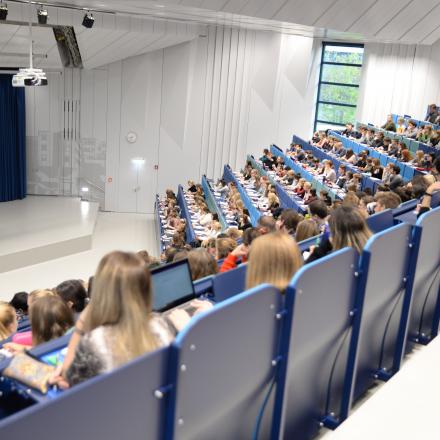
Committment to Teaching
Versatile Education
Our researchers pass on their specialist knowledge in courses with innovative teaching / learning forms.

Computational Literary Studies
A Bird's Eye View of Literature
Whoever wants to use text and data resources efficiently today, especially in the humanities, needs innovative methods and tools.
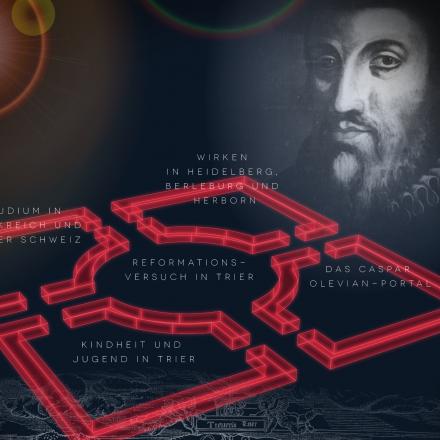
Cultural Heritage Studies
Safeguarding and Exploring Cultural Heritage
We are research partners for all humanities disciplines and rely on strategic networking of all the people involved.
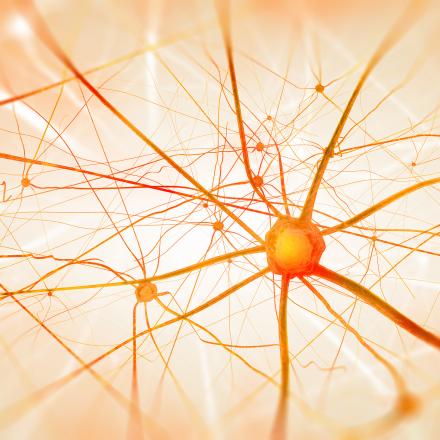
Data Retrieval
Disclosing Information Structures
Structures in terms of content and logic are developed formally and modeled independently of the system in data collections via computer-aided methods.

Developing Software Systems
Flexible and Accurate Solutions
The software systems we develop together with humanities and cultural scholars are ergonomic and goal-oriented solutions to support individual and dynamic research projects effectively.

Digital Editions
Accessing and Publishing Sources Multimodally
Digital editions offer a wide range of options for processing sources scientifically and making them accessible in open access.
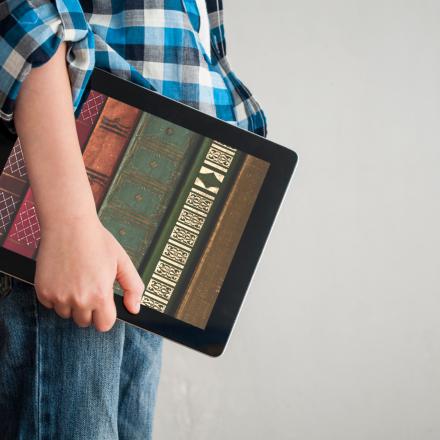
Digital Lexicography
Publishing, Developing and Connecting Dictionaries in Open Access
Via the digital merging of several dictionaries, comprehensive searches can be easily achieved.

Full Text Digitization
Making Basic Works Searchable
High-quality full-text digitization in form of a diplomatic copy is a decisive requirement in order to store basic works in databases and, thus, to make them searchable and connectable.
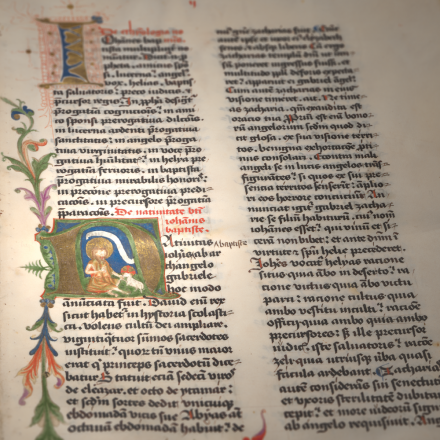
Historical Manuscript and Book Studies
Reconstructing Libraries - Researching Manuscripts
Virtual reconstructions and research of medieval and modern manuscripts and historical library holdings.
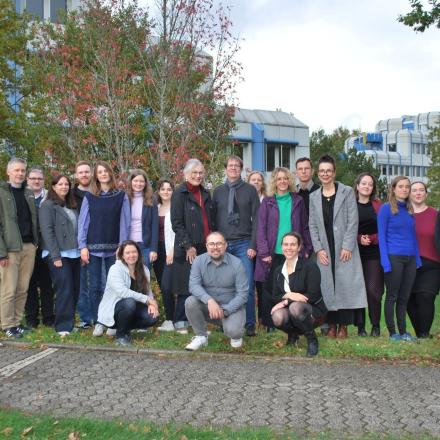
Implementing Research Projects Digitally
Rely on Our Experience!
We model text data and multimedia objects, apply our tools and establish procedures, design websites and ensure sustainable research data management.

Managing Research Data
Creating the Common Thread
You can achieve your research goals with professional data management.
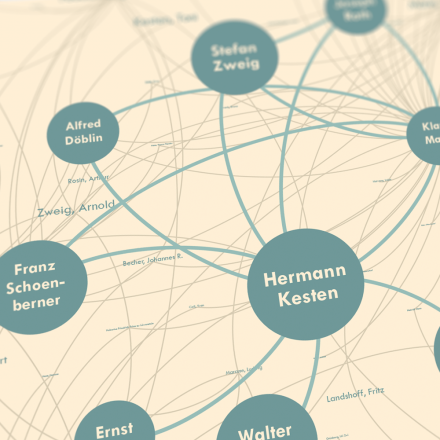
Methods of Text Analysis
Stilometry, Topic Modeling, Network Analysis
Implementing Quantitative Analysis Methods from a Scientific Perspective
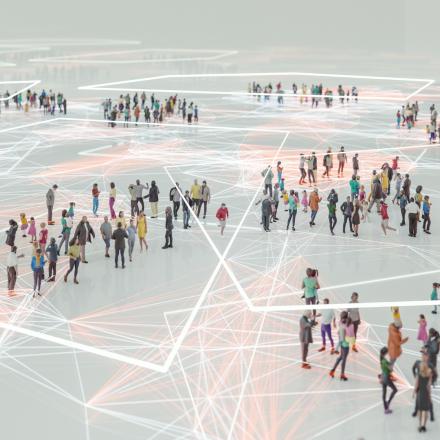
Networked Research
Active in Strong Associations
We rely on scientific cooperation and targeted network building in international research associations.

Open Science
Research in a Transparent and Freely Available Manner
Open Access, Open Source, Open Data as well as other terms represent a research sector with transparent approaches and freely available results.
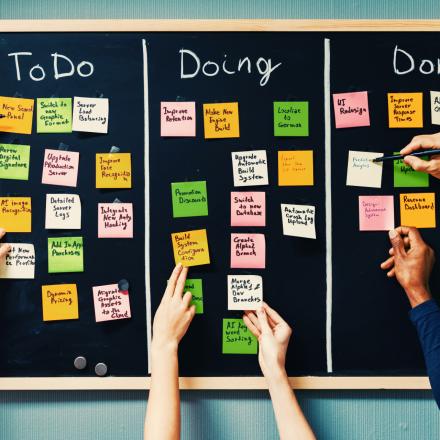
Project Management
Working in a Structured and Interdisciplinary Manner
We consider our work processes to be an interface between technical expertise, knowledge-based services and humanities research in the range of Digital Humanities.

Promotion of Young Talents
Diverse Exchanges
The promotion of young scientists and the interdisciplinary and international exchange are among our guiding principles.

Research Infrastructures
Using Overall Capacities
As is often the case, the key to success is cooperation. Together with our partners, we participate in international, national and regional research infrastructures.

Science Communication
Explaining Science
We share our knowledge from theory to practice. Science communication is a central pillar of our self-image.

Typography
Creating a Layout for Research Results
The TCDH can look back on many years of experience in the field of typography - for print and for publication on the Internet.

Usability Engineering and UX
Simply Designing Ergonomically
Users are people. We would like to support people and enable them to work with digital products in the best possible way.

XML / Web-Technologies
International Standards as a Basis
We consistently use generally accepted methods for the modeling, development and transformation of information.

